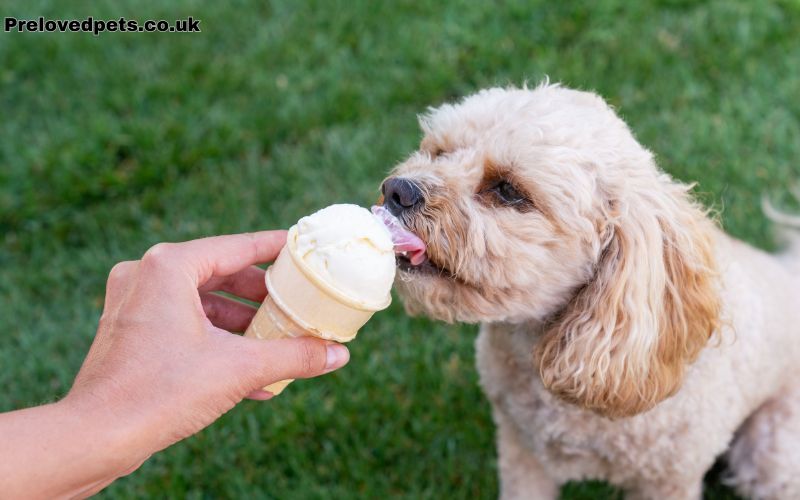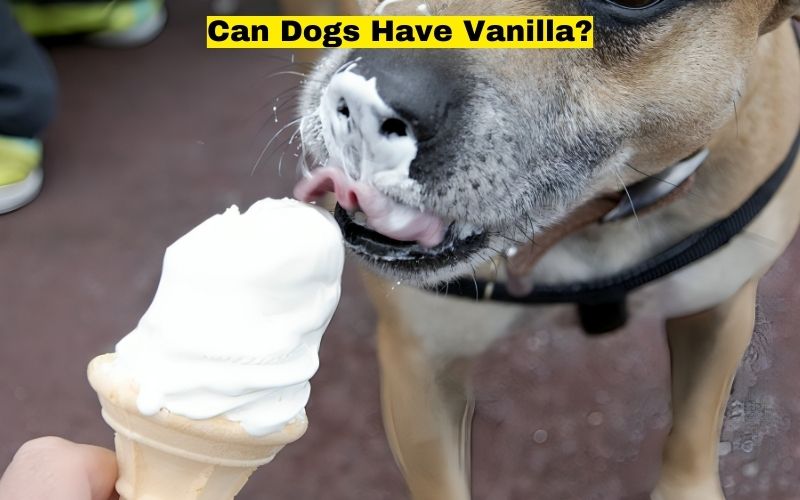When it comes to sharing human foods with our beloved canine companions, it’s important to be cautious and informed. While some ingredients are safe and even beneficial for dogs, others can be harmful or toxic. One ingredient that often raises questions among dog owners is vanilla. Vanilla is a popular flavoring in many desserts and foods, but can dogs safely consume it? In this article, we’ll explore the potential risks and benefits of vanilla for dogs, different forms of vanilla, and what to consider when offering it to your furry friend.
Understanding Vanilla: What Is It?
Vanilla is derived from the pods of vanilla orchids, a tropical plant native to Central America and the Caribbean. The most common species used for vanilla flavoring is Vanilla planifolia. The beans contain tiny seeds, which are rich in a compound called vanillin. This compound is responsible for the distinctive flavor and aroma of vanilla.
Vanilla is available in various forms, including:
- Vanilla Extract: A concentrated liquid form made by soaking vanilla beans in alcohol and water. It is commonly used in baking and cooking.
- Vanilla Bean: The whole vanilla pod, which can be split open to reveal the tiny seeds. Both the seeds and the pod can be used in cooking.
- Vanilla Powder: A fine powder made from ground vanilla beans. It is used as a flavoring agent in a variety of recipes.
- Imitation Vanilla: Also known as vanilla essence, this is a synthetic version of vanilla flavoring made from artificial compounds.
Each form of vanilla has its own considerations when it comes to canine consumption.
Is Vanilla Safe for Dogs?

Vanilla Extract and Alcohol Content
One of the primary concerns with vanilla extract is its alcohol content. Vanilla extract is typically made by steeping vanilla beans in a mixture of water and ethanol (alcohol). The resulting liquid contains a high percentage of alcohol, usually around 35%. This is a significant concern because alcohol is toxic to dogs.
Dogs metabolize alcohol differently than humans, and even small amounts can cause serious health issues. Symptoms of alcohol poisoning in dogs include vomiting, diarrhea, lack of coordination, difficulty breathing, tremors, and in severe cases, coma or death. Therefore, it’s crucial to keep products containing alcohol, including vanilla extract, out of reach of your pets.
Pure Vanilla Bean and Powder
Pure vanilla bean and vanilla powder are safer alternatives compared to vanilla extract. These forms do not contain alcohol and are derived directly from the vanilla plant. However, they should still be used sparingly. While vanilla itself is not toxic to dogs, it is not a necessary component of their diet and should only be given in moderation.
Imitation Vanilla and Artificial Ingredients
Imitation vanilla, also known as vanilla essence, is made from synthetic compounds that mimic the flavor of natural vanilla. It may contain artificial ingredients, including vanillin, ethyl vanillin, and other chemicals. While these substances are generally safe for human consumption, they may not be suitable for dogs.
Artificial flavorings and additives can sometimes cause digestive upset or allergic reactions in dogs. If you’re considering giving your dog a treat that contains imitation vanilla, it’s best to consult with your veterinarian first.
Potential Benefits of Vanilla for Dogs
While vanilla is not a necessary part of a dog’s diet, there are some potential benefits to using it in moderation:
- Flavor Enhancement: Vanilla can be used to add flavor to homemade dog treats. If you’re making treats at home, a small amount of vanilla can make them more appealing to your dog without adding unhealthy ingredients like sugar or chocolate.
- Aromatherapy: The soothing scent of vanilla is often used in aromatherapy to promote relaxation and reduce stress. Some dog owners use vanilla-scented sprays or diffusers to create a calming environment for their pets, especially during stressful situations like thunderstorms or fireworks.
- Natural Antioxidants: Vanilla contains small amounts of antioxidants, which can help combat free radicals and support overall health. However, the amounts found in vanilla are minimal, and dogs should primarily receive their antioxidants from a balanced diet rich in fruits and vegetables.
Potential Risks and Considerations
While vanilla itself is not inherently harmful to dogs, there are several important considerations to keep in mind:
- Sugar Content: Many vanilla-flavored products, such as ice cream, yogurt, and baked goods, contain added sugars. High sugar intake can lead to obesity, dental problems, and other health issues in dogs. It’s important to avoid giving your dog sugary treats, even if they contain vanilla.
- Xylitol: Some sugar-free products use xylitol as a sweetener. Xylitol is extremely toxic to dogs and can cause a rapid release of insulin, leading to hypoglycemia (low blood sugar), seizures, liver failure, and even death. Always check ingredient labels and avoid products containing xylitol.
- Caloric Intake: Vanilla-flavored treats, especially commercial ones, can be high in calories. Excessive calorie intake can lead to weight gain and related health issues in dogs. If you’re using vanilla in homemade treats, be mindful of the portion size and the overall caloric content.
- Digestive Sensitivity: Some dogs may have sensitive stomachs and may not tolerate vanilla or other flavorings well. Monitor your dog for any signs of digestive upset, such as vomiting, diarrhea, or changes in appetite, after consuming vanilla.
Safe Ways to Use Vanilla for Dogs
If you decide to use vanilla for your dog, it’s important to do so safely and in moderation. Here are some guidelines:
- Use Pure Vanilla Bean or Powder: Opt for pure vanilla bean or vanilla powder instead of vanilla extract or imitation vanilla. These forms do not contain alcohol or artificial additives.
- Moderation Is Key: Use vanilla sparingly. A small amount of vanilla powder or a few seeds from a vanilla bean can add flavor to homemade treats without posing a risk to your dog’s health.
- Avoid Sugary and Processed Foods: Avoid giving your dog vanilla-flavored foods that contain added sugars, artificial sweeteners, or other unhealthy ingredients. Stick to natural, whole ingredients whenever possible.
- Consult Your Veterinarian: If you’re unsure about using vanilla or any other new ingredient in your dog’s diet, consult your veterinarian. They can provide guidance based on your dog’s specific health needs and dietary restrictions.
See Also: Can Dogs Eat Okra
Homemade Vanilla Dog Treat Recipe
For those who enjoy baking for their pets, here’s a simple and safe homemade vanilla dog treat recipe:
Vanilla Oat Dog Biscuits
Ingredients:
- 1 1/2 cups oat flour (or blended oats)
- 1/2 cup plain Greek yogurt (unsweetened)
- 1/4 cup unsweetened applesauce
- 1/2 teaspoon pure vanilla powder or a few seeds from a vanilla bean
Instructions:
- Preheat your oven to 350°F (175°C).
- In a mixing bowl, combine the oat flour, Greek yogurt, applesauce, and vanilla powder or seeds. Mix until well combined.
- Roll out the dough on a lightly floured surface to about 1/4-inch thickness.
- Use cookie cutters to cut out shapes from the dough.
- Place the cut-out shapes on a baking sheet lined with parchment paper.
- Bake for 15-20 minutes or until the biscuits are firm and lightly golden.
- Allow the biscuits to cool completely before serving them to your dog.
These homemade treats are a healthier alternative to store-bought options and contain no added sugars or artificial ingredients.
FAQs
Can dogs eat vanilla extract?
No, dogs should not consume vanilla extract. Vanilla extract contains a high percentage of alcohol, which is toxic to dogs. Even small amounts of alcohol can cause serious health issues, including vomiting, diarrhea, lack of coordination, and in severe cases, coma or death.
Is vanilla safe for dogs in any form?
Yes, pure vanilla bean and vanilla powder can be safe for dogs in moderation. These forms do not contain alcohol and can be used as a flavoring in homemade dog treats. However, they should be given sparingly and should not be a regular part of a dog’s diet.
Can dogs have foods flavored with imitation vanilla?
Imitation vanilla, also known as vanilla essence, is made from synthetic compounds. While it is not inherently toxic, it may contain artificial ingredients that could upset a dog’s stomach or cause allergic reactions. It’s best to consult with your veterinarian before giving your dog any foods flavored with imitation vanilla.
Are there any benefits to giving dogs vanilla?
Vanilla can be used to enhance the flavor of homemade dog treats and provide a pleasant aroma. However, it is not a necessary part of a dog’s diet and should only be used in moderation. The small amount of antioxidants in vanilla is not significant enough to impact a dog’s health.
Conclusion
In conclusion, while vanilla itself is not toxic to dogs, certain forms of vanilla, such as vanilla extract, can pose serious risks due to their alcohol content. When using vanilla in your dog’s treats or diet, it’s essential to choose pure vanilla bean or powder and use it sparingly. Always be mindful of added sugars, artificial sweeteners, and other potentially harmful ingredients.
As with any new addition to your dog’s diet, it’s best to consult with your veterinarian to ensure that it is safe and appropriate for your pet’s specific health needs. By taking these precautions, you can safely share the delightful flavor of vanilla with your furry friend in moderation.




